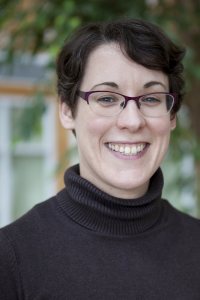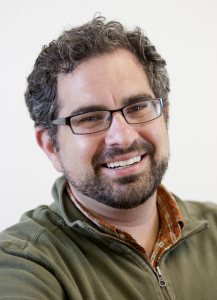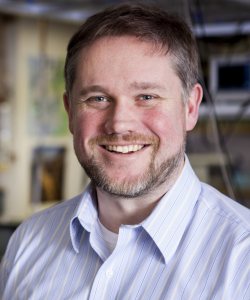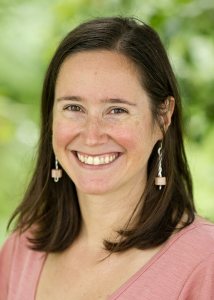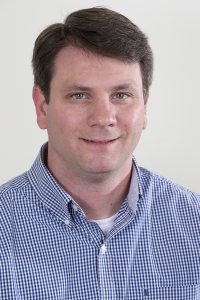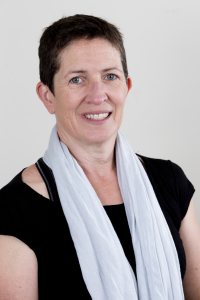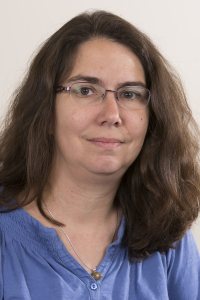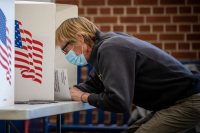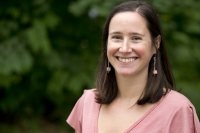
Bates announces seven faculty promotions, including four tenure decisions
In faculty promotions recently announced at Bates College, four professors have earned tenure and three others have been named full professor.
These professional milestones recognize the significant contributions each professor has made to their field of study and to the growth and education of their students, said Matthew Auer, vice president for academic affairs and dean of the faculty.
“All seven faculty members are outstanding teachers and scholars,” Auer said. “They exemplify what it means to be fully invested members of our liberal arts community and leaders in the academy.”
The promotions, awarded to professors in the fields of philosophy, politics, mathematics, physics, dance, biology, and chemistry, were recommended by the faculty Committee on Personnel and approved by the college’s Board of Trustees during the 2014-15 academic year. They took effect Aug. 1.
Promotions to associate professor with tenure
Lauren Ashwell
Department: Philosophy
Field of study: Metaphysics, philosophy of mind, epistemology, and feminist philosophy
Came to Bates in: 2009
Why I teach: “Philosophy classes help develop the skills of thinking carefully, considering opposing views charitably, and giving arguments supported by good reasons rather than mere opinions.
“Not only are these incredibly useful general skills, it’s also super fun to engage in these mental calisthenics together in discussion. I love it when I can help students think about a question in a new way, and also when they can do the same for me!”
Stephen Engel
Department: Politics
Field of study: American political development, constitutional law, and social movements, particularly LGBTQ sociopolitical and legal mobilization
Came to Bates in: 2011
Why I teach: “One of the reasons I enjoy teaching at a liberal arts college, and at Bates in particular, is the substantial openness here to challenging and breaking through disciplinary boundaries. When designing my classes in constitutional law and LGBTQ+ politics, I have been able to reach beyond traditional political science and law to incorporate history, sociology, music, film, television, and advertising.
“Doing so not only is an exciting creative challenge and keeps things interesting for me, but I hope it provides access points for students who might not initially be drawn to the study of U.S. politics, who may not be politics majors. Because, in the end, I teach to inspire a student not to be a political scientist or a lawyer per se, but instead to think a bit more critically about power, identity, and participation, and to take responsibility and accountability for our collective role in shaping the world as it is and as we hope it can be.”
Nathan Lundblad
Department: Physics and Astronomy
Field of study: Ultralow-temperature physics, Bose-Einstein condensation, and atomic physics in microgravity
Came to Bates in: 2009
Why I teach: “Physics is the study of how our universe operates at a fundamental level. To see students work with this material, and grow and change over their four years at Bates, is an immense privilege and pleasure. Seeing where they go after Bates is a great pleasure as well; it’s a strong motivation for me every day to know that the interactions I have with students have the potential to affect their lives years down the line
“On top of that, Bates makes it possible for me to be an active scholar in my field, which gives students a unique opportunity to be a part of cutting-edge physics research while getting all the advantages of the small-college experience.”
Adriana Salerno
Department: Mathematics
Field of study: Number theory and arithmetic geometry, with an interest in communicating mathematics to the general public
Came to Bates in: 2009
Why I teach: “I believe quantitative literacy, just like verbal literacy, is fundamental to ensuring that our students go on to be successful and involved citizens when they graduate.
“I love helping students navigate math problems at all levels, from the intro courses to the upper-level math major courses and capstones, particularly if I can help them see more of the power and beauty in mathematical thinking. It is a great joy to see my students grow as people and as learners. I like to think of my classes as a community of equals, and I love how much I also learn from my students.”
Promotions to full professor
Ryan Bavis
Department: Biology
Field of study: Animal physiology, particularly respiratory physiology
Came to Bates in: 2003
Why I teach: “As a product of a small liberal arts college myself, I know how rewarding it is for undergraduates to get into the lab and actually do science. I am so fortunate to be able to offer these opportunities to the students here at Bates through inquiry-based labs, summer research fellowships, and senior capstone experiences.”
Carol Dilley
Department: Theater and Dance
Field of study: Dance
Came to Bates in: 2003
Why I teach: “As an artist whose dance practice informs my experience of the world, I like to think I make a difference through my work. As an artist who teaches, I influence the next generation to consider the world with the sensibilities of an artist as well.
“Teaching in the arts is my most effective means to generate positive momentum towards growth in the immediacy of the dance studio and in the world beyond.”
Paula Schlax
Department: Chemistry
Field of study: The role of RNA structure in controlling gene expression in diverse prokaryotes
Came to Bates in: 1998
Why I teach: “I love to help students learn how to develop a research question, design and execute experiments to answer their question, analyze and interpret their own experimental data, and, perhaps most importantly, recognize that these are useful skills for lifelong learning in most disciplines.”
